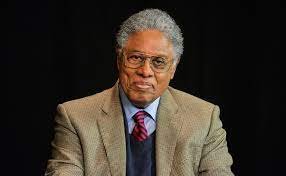Asian Americans are a substantial presence in this region but they are by no means a majority, much less such an overwhelming majority as they are among those winning high tech awards.
This pattern of disproportionate representation of particular groups among those with special skills and achievements is not confined to Asian Americans or even to the United States. It is a phenomenon among particular racial, ethnic or other groups in countries around the world — the Ibos in Nigeria, the Parsees in India, the Armenians in the Ottoman Empire, Germans in Brazil, Chinese in Malaysia, Lebanese in West Africa, Tamils in Sri Lanka. The list goes on and on.
Gross inequalities in skills and achievements have been the rule, not the exception, on every inhabited continent and for centuries on end. Yet our laws and government policies act as if any significant statistical difference between racial or ethnic groups in employment or income can only be a result of their being treated differently by others.
Nor is this simply an opinion. Businesses have been sued by the government when the representation of different groups among their employees differs substantially from their proportions in the population at large. But, no matter how the human race is broken down into its components — whether by race, sex, geographic region or whatever — glaring disparities in achievements have been the rule, not the exception.
Anyone who watches professional basketball games knows that the star players are by no means a representative sample of the population at large. The book "Human Accomplishment" by Charles Murray is a huge compendium of the top achievements around the world in the arts and sciences, as well as in sports and other fields.
Nowhere have these achievements been random or representative of the demographic proportions of the population of a country or of the world. Nor have they been the same from one century to the next. China was once far more advanced technologically than any country in Europe, but then it fell behind and more recently is gaining ground.
Most professional golfers who participate in PGA tournaments have never won a single tournament, but Arnold Palmer, Jack Nicklaus and Tiger Woods have each won dozens of tournaments.
Yet these and numerous other disparities in achievement are resolutely ignored by those whose shrill voices denounce disparities in rewards, as if these disparities are somehow suspicious at best and sinister at worst.
Higher achieving groups — whether classes, races or whatever — are often blamed for the failure of other groups to achieve. Politicians and intellectuals, especially, tend to conceive of social questions in terms that allow them to take on the role of being on the side of the angels against the forces of evil.
This can be a huge disservice to those individuals and groups who are lagging behind, for it leads them to focus on a sense of grievance and victimhood, rather than on how they can lift themselves up instead of trying to pull other people down.
Again, this is a worldwide phenomenon — a sad commentary on the down side of the brotherhood of man.
